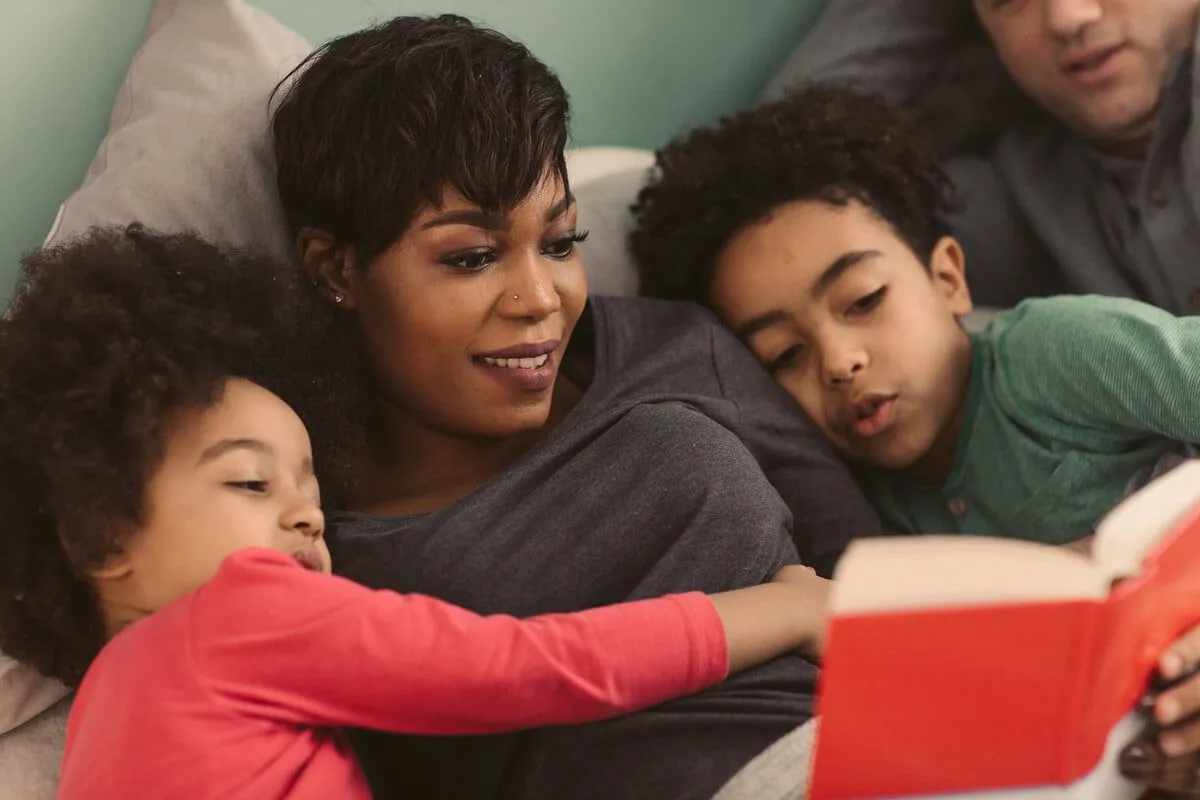FOR AGES 7 YEARS TO 11 YEARS
Image © pvproductions, under a Creative Commons license.
Reading books is a brilliant way to broaden the imagination of any primary school child.
Discussing what they liked and didn't like in a review of a book encourages them to express themselves and increases their confidence in their opinions. However, it's not always easy to get children to engage in reading books, let alone write down what they thought.
Have no fear, our guide to book reports and book reviews will lead you through the process to easily support your child's reading and writing.
We're right there with you with this simple guide to book reviews and the key stages to help make it happen. Looking for further resources to support their reading and writing skills? Check out our guide to the key features of letter writing, or we've got resources for persuasive writing covered too.

Image © pvproductions, under a Creative Commons license.
Book reports often describe what the book is about, whereas a book review will be focused on what your child thought of the book.
In KS2 English, children will be expected to use their writing skills to describe or a book or give their opinion on it in a book review, and be able to justify why they feel the way they do.
Book reviews are used throughout KS1 and KS2, with a higher level of length and depth in writing expected in KS2. In Years 1-3, children may be given a template sentence to fill in about why they liked a book, progressing to dividing the book review into separate headings. In Year 6, more independent thinking is required and children should use a variety of words and descriptive vocabulary in their book review writing.
A book review or report is your child's written analysis of a book they have read. A book review is used so that primary children can show their comprehension of a book and to help them think about the types of books they like or don't like reading. A book review or book report can also improve your child's literacy skills as analysing an author's use of spelling, grammar and vocabulary helps them to refine their own writing style to express themselves.

Image © jcomp, under a Creative Commons license.
It can be helpful to get your child to plan writing their review of the book in these four key stages:
1. What is the title of the book and who is the author?
2. What happened in the book? Give an overview of the plot, characters and setting. You can use a timeline to help remind you of the order of events, with the start of the book at the top of the page and the final page of the book at the bottom, adding in a few key events to the middle of the timeline.
3. What did your child like about the book? Was there something that happened, or the way a character was described, that they really loved? If there was a word they liked, make sure they write down exactly what the word was and have a think about why they liked it so much. What didn't your child like about the book? Were there any bits that felt slow or boring, or any characters that didn't seem real? Again, make sure they note the words and phrases that made them feel this way.
4. Would your child recommend it? To whom? Is there anybody they could imagine really enjoying the story? Be specific!

Now you've got an idea of the content and structure of a book review, how can you support your child to produce a sparkling piece of independent thought and analysis? Easy! There are lots of resources online, but here are a few of our favourite book review tips to get you started:
Check Understanding: Could you talk through the book with your child and make sure they have read and understood what they will be writing about? Perhaps they could describe the plot of the book back to you, or verbally list of their favourite things about it.
Ask Their Opinion: Why not ask them how they would describe their favourite movie, in particular their favourite scene? Ask them why they liked it so much and help them to bring these words into their review about a book.
Illustrate The Best Bits: With those quotes you picked out, or favourite sections you discussed, why not get them to draw these out with the best descriptive words they can think of? You can then make a list of these words to use for future book reviews.
Write To The Author: Lots of authors write back if they receive letters or emails, and sending your child's book review to the author and gaining a response could be a great motivation to help boost their writing.
Online Resources: There are many book review templates and checklist resources to use as a guide and give your child something to refer back to. You can also check out book reviews by other children to help give some inspiration for writing well.
Read The Disclaimer
At Kidadl we pride ourselves on offering families original ideas to make the most of time spent together at home or out and about, wherever you are in the world. We strive to recommend the very best things that are suggested by our community and are things we would do ourselves - our aim is to be the trusted friend to parents.
We try our very best, but cannot guarantee perfection. We will always aim to give you accurate information at the date of publication - however, information does change, so it’s important you do your own research, double-check and make the decision that is right for your family.
Kidadl provides inspiration to entertain and educate your children. We recognise that not all activities and ideas are appropriate and suitable for all children and families or in all circumstances. Our recommended activities are based on age but these are a guide. We recommend that these ideas are used as inspiration, that ideas are undertaken with appropriate adult supervision, and that each adult uses their own discretion and knowledge of their children to consider the safety and suitability.
Kidadl cannot accept liability for the execution of these ideas, and parental supervision is advised at all times, as safety is paramount. Anyone using the information provided by Kidadl does so at their own risk and we can not accept liability if things go wrong.
Kidadl is independent and to make our service free to you the reader we are supported by advertising.
We hope you love our recommendations for products and services! What we suggest is selected independently by the Kidadl team. If you purchase using the buy now button we may earn a small commission. This does not influence our choices. Please note: prices are correct and items are available at the time the article was published.
Kidadl has a number of affiliate partners that we work with including Amazon. Please note that Kidadl is a participant in the Amazon Services LLC Associates Program, an affiliate advertising program designed to provide a means for sites to earn advertising fees by advertising and linking to amazon.
We also link to other websites, but are not responsible for their content.
Was this article helpful?



Browse Category



We’ll send you tons of inspiration to help you find a hidden gem in your local area or plan a big day out.



Check your inbox for your latest news from us. You have subscribed to:
Remember that you can always manage your preferences or unsubscribe through the link at the foot of each newsletter.